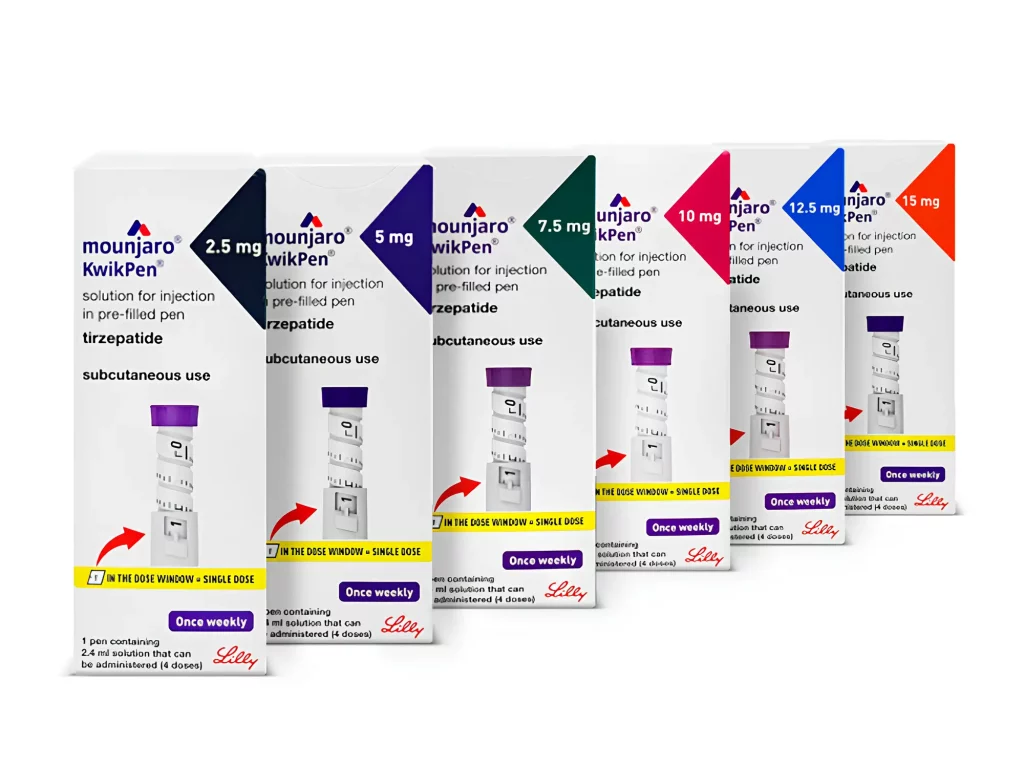
Ozempic® Injectable Pen
Out of Stock
Effective GLP-1 weight loss treatment
- Self-Injection Pens – Weekly
- Confidential assessment and discreet delivery
- GLP-1 agonist reduces appetite and makes you feel fuller
- Lose up to 10% of your actual body weight
- Lowest price guaranteed
| Dose | Price | Stock |
|---|---|---|
|
0.25 mg |
£149.00 |
❌ |
|
0.5 mg |
£159.00 |
❌ |
|
1 mg |
£169.00 |
❌ |
Start the consultation to proceed:
You will be able to select a suitable treatment after you have completed the consultation form.
Frequently Asked Questions (FAQs)
Ozempic is a once-weekly injection originally developed for blood sugar control in type 2 diabetes—but it’s also widely used to support effective, medical weight loss under clinical supervision.
Ozempic is a GLP-1 receptor agonist that mimics a natural hormone to regulate blood sugar, reduce appetite, and promote feelings of fullness—helping with weight loss.
While Ozempic is licensed for type 2 diabetes in the UK, it is commonly prescribed “off-label” by healthcare professionals to support weight loss under medical supervision.
Yes. Ozempic is a prescription-only medicine and can only be dispensed after a full medical consultation and approval by a UK-registered prescriber.
Ozempic is injected once weekly using a pre-filled injection pen. It’s a subcutaneous (under the skin) injection you can do at home.
Results vary, but many users begin to notice weight loss within the first few weeks. Full benefits often appear after consistent use over several months.
Clinical data shows that users may lose up to 10–15% of their body weight when combined with a reduced-calorie diet and active lifestyle.
Ozempic is typically available in 0.25 mg, 0.5 mg, and 1 mg doses. Your prescriber will guide you on a gradual increase based on your response.
No. Your dose will be determined by the prescriber after assessing your health profile through the consultation form.
The most common side effects include nausea, constipation, diarrhea, and fatigue. These usually improve as your body adjusts to the medication.
Ozempic is generally safe but may not be suitable for individuals with certain health conditions. Your eligibility is carefully assessed by a licensed prescriber.
Yes, many people use Ozempic off-label solely for weight loss purposes, with medical approval and monitoring.
Each pen typically lasts four weeks, depending on your dose and frequency.
Yes. Combining Ozempic with a healthy, reduced-calorie diet and regular physical activity will significantly improve results.
Yes, but it’s best to consult your prescriber before stopping to avoid side effects or weight regain.
Some individuals may regain weight after stopping if lifestyle habits aren’t maintained. Long-term success depends on sustained changes in diet and activity.
Both medications contain Semaglutide, but Wegovy is licensed for weight loss while Ozempic is licensed for diabetes. Ozempic is often used off-label for weight loss.
Moderate alcohol consumption is generally safe, but you should consult your prescriber, especially if you have diabetes or liver concerns.
Ozempic is highly effective and well-tolerated for many users, but other treatments may be recommended depending on your health profile and goals.
Before first use, Ozempic should be stored in the fridge. After opening, it can be stored at room temperature for up to 6 weeks. Always follow the label instructions.
Yes. All your information is securely handled in accordance with UK data protection laws. Your privacy and safety are our top priority.
- Self-injection weekly
- Reduces appetite and makes you feel fuller
- Lose up to 15% of your actual body weight
- Same-day collection from our London clinic
1.7 mg 2.4 mg
1 pen and 4 disposable needles
from £170 £119 per month (Save 30%)
(Out of Stock)
- Reduces appetite and makes you feel fuller
- Self-injection weekly
- Lose up to 20% of your actual body weight
- Same-day collection from our London clinic
10 mg 12.5 mg 15 mg
1 pen and 4 disposable needles
from £139 per month
(Out of Stock)


